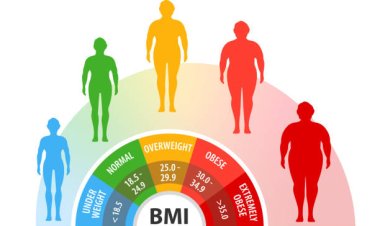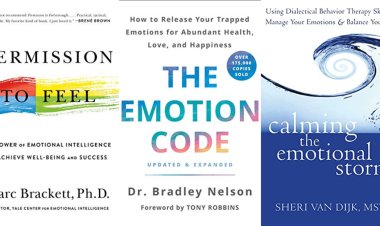What to Know About Family Therapy
Family therapy can help address mental health conditions, substance use disorders, and conduct disorders, among others. Moreover, with family therapy

Improved communication and understanding between family members is the primary goal of family therapy. Substance abuse disorder and oppositional defiant disorder are only two examples of the unique mental health and behavioural disorders that can be helped. All sorts of family configurations are possible in family therapy.
What is family therapy?
Family therapy is a type of talk therapy (group psychotherapy) that aims to strengthen bonds within families.

A family is a collection of people that look out for one another and care for one another. Different combinations of family members, including parents/guardians and their children, siblings, grandparents, aunts/uncles, friends, kinship carers, etc., can participate in family therapy.
Cases where therapy may be useful include:
Adapting to a major life shift (such a move) or a serious health issue.
The difficulties and shifts inherent in getting older.
Loss and mourning.
Disagreements in close relationships can arise amongst family members.
Therapists in the mental health field often employ family therapy while working with an individual member of the family who is experiencing emotional or behavioural difficulties. Anorexia, for instance, can be treated in one family member through family therapy involving all or several family members.
Psychologists, therapists, and counsellors are all examples of licenced mental health professionals with training and experience in family therapy. They typically hold credentials as LMFTs (Licenced Marriage and Family Therapists). You and your loved ones can benefit greatly from the encouragement, insight, and direction that are available through therapeutic interventions.
The length of time spent in therapy, the methods used, and the end goals of treatment might vary greatly between the various family therapy models.
What are the types of family therapy?

There are a variety of family therapy approaches used by mental health experts, and many practitioners focus on one particular approach. It is important to consider your family's unique situation and needs while making this decision. In order to tailor their services to you, therapists may use aspects of many therapeutic modalities.
Some forms of family therapy include:
Functional family therapy (FFT):
Helping families with children who have behavioural challenges is a common goal of functional family therapy (FFT). FFT analyses the ways in which family dynamics may have influenced a child's challenging behaviour, then works to strengthen parental communication and positive reinforcement strategies.
Marriage counseling/couples therapy
Therapy in which both you and your significant other participate is called marriage counselling or couples therapy. Therapists who have an LMFT credential have completed further training in helping couples diagnose and address their issues. Problems can arise from a variety of sources, including conversations, parenting, money, and even the two of you's mental health.
Strategic family therapy:
Short-term therapy for families that aims to improve the family dynamic through structural and behavioural modifications is known as strategic family therapy. The family is assumed to be the primary influence in a child's growth and development. This therapy format may be used by therapists working with families whose children have behavioural problems.
Structural family therapy:
Structural family therapy is a form of psychotherapy that analyses the dynamics (or "structure") of a family. It sees communication inside the family as the most important factor in bringing about change. The core tenet of structural family therapy is that, with the help of a therapist, families may learn to solve their own problems through new ways of interacting.
Systemic family therapy:
Consideration of the family's problems in their various social settings is central to systemic family therapy. The therapist may take into account a patient's role as a spouse, parent, and kid in the context of the entire family. Socioeconomic standing, as well as one's religious and political beliefs, provide further context. According to this method, one's environment is the single most important factor in determining the quality of one's mental health.
Psychoeducation is an integral aspect of therapy for families dealing with a mental health condition. Psychoeducation refers to the process through which mental health professionals educate both patients and their loved ones. It entails common knowledge about the illness, its origins, medical care, and expected outcome (prognosis).
What issues can family therapy help fix?
Psychoeducation is an essential aspect of treatment for families dealing with mental health issues.There are many different motivations for families to seek help in therapy. The benefits of family therapy extend to, but are not limited to, the following situations:
Relationships within the family have been strained.
Stress.
Anger.
Problems in conveying ideas.
Physical or mental trauma.
Managing the emotional and practical demands of caring for a loved one who has a serious health condition, such as multiple sclerosis, cancer, a stroke, chronic pain, or an autoimmune disorder.
Loss and mourning for a deceased loved one.
Problems in a marriage or a romantic relationship.
Adjusting to a dramatic life shift like losing a job, relocating, or being arrested.
Members of the following mental health problems may benefit from family therapy:
Disturbances of the anxious system, such OCD.
Anorexia and other forms of disordered eating.
Depression and mania are examples of mood disorders.
Distorders of the mind, such as borderline personality.
Schizophrenia.
Addiction to drugs or alcohol.
It's also useful for treating a variety of behavioural issues in kids.
Disrupted behaviour.
Disorder of disruptive mood dysregulation (DMDD).
Disturbance in behaviour commonly known as ODD.
Families that include someone with a neurodivergent condition, such as autism or ADHD, frequently take part in therapy sessions themselves.as part of the treatment. Psychoeducation refers to the process through which mental health professionals educate both patients and their loved ones. It entails common knowledge about the illness, its origins, medical care, and expected outcome (prognosis).
How do I find a family therapist?
Most family therapists hold the LMFT credential, while any clinical psychologist, social worker, or counsellor can provide similar services.
It might be a lengthy process to locate a competent therapist. Don't give up or get down on yourself. If you need a referral for a therapist, talk to the individuals you already trust, such as your primary care physician or friends and family.
Local and state psychological associations are another internet resource for locating a qualified family therapist.
If you're looking for a family therapist, it's important to find someone who is qualified to treat the issues you're facing, such as a recent breakup or behavioural issues in a child.
Most therapists will detail the issues they work with on their websites. Before deciding on a therapist, you may want to contact their clinic with any questions you may have.
The following are some questions that could be beneficial to ask a potential therapist:
When did you first start working as a therapist?
What sort of counselling do you suggest for my loved ones and I?
How long will you need my loved ones to devote to therapy at the outset?
How does family therapy work?
Evidence-based therapy, family therapy is based on theory and skillful conversation. Your family will feel comfortable opening up to a trained mental health expert in this setting. This expert is neutral and qualified to assist you and your loved ones in a variety of ways.
You and your family work on your relationships and communication with the help of a mental health expert. You make an effort to implement wholesome routines to boost the efficiency and happiness of your household. The mental health or behavioural condition of a family member can be better understood and treated with the help of family therapy.
The therapist you see may:
During family therapy, it's important to have input from everyone.
Insist that everyone take turns talking and listening to one another.
Make sure everyone's on the same page by clarifying their language and emotions.
Make sure your loved ones know how their actions and words affect those around them.
Involve the whole family in discovering ways to make changes for the better.
Give some advice on how to alter destructive routines and habits.
Because of the central role that communication plays in family therapy, it's crucial that everyone engaged be an active participant. If you want to get the most out of therapy, it's crucial that you and your therapist have a strong working relationship based on mutual trust and respect.
The number of sessions and how often they occur varies from one family to the next. A course of therapy could consist of just a few sessions, or it might stretch on for months. Your therapist may recommend scheduling separate sessions with each member of the family.
What are the benefits of family therapy?
Adolescent substance abuse, depression, and obesity are just some of the mental and emotional health concerns that have been demonstrated to respond positively to family therapy. Family member interactions and conflict have also been shown to improve significantly.
These enhancements may also result in enhanced productivity in one's professional or academic life.
After going through family therapy:
The majority of respondents (89.1%) say their mental health has improved.
Almost two-thirds of people say they feel healthier overall now.
Approximately 73% of parents say their child's behaviour improved after talking to them.
What are the risks of family therapy?
Is family therapy without risks?
Not every family would benefit from treatment. Family conflict might escalate if some members are unwilling or unable to open up during the sessions.
The success of family therapy increases if all of the following conditions are met:
Tell the therapist everything that's on your mind.
desire to improve and are dedicated to doing so.
Stick to the course of treatment that was decided upon.
are prepared to devote themselves wholly to therapy and complete assigned tasks (if any).
You or your loved ones may experience a modest increase in distress as a result of therapy, depending on the circumstances. Talking to a therapist can help you process these emotions.
How long does family therapy take to work?
There are a number of elements that will determine how long you and your loved ones need to participate in therapy.
The motivation behind your family's therapy sessions.
To what end you set out.
If everyone in your family is making an effort to fix the problems you've been having.
Family therapy can be done for a short period of time (on the order of 12 sessions on average) to address pressing difficulties, or for a longer period of time (months or years) to address mental health disorders and/or complex problems. Your family and therapist will work together to establish treatment goals and establish a schedule for therapy sessions.
It's not uncommon for families to return to therapy more than once, whether it's for the same problem or something else entirely.
When should I see my mental health provider?
Due to the sensitive nature of the topics being discussed, it is natural for family members to feel uneasy during therapy sessions. Contact your mental health professional or a healthcare practitioner immediately if your symptoms worsen or if your anxiety or sadness becomes severe.
Dial 988 to reach the Suicide and Crisis Lifeline if you or a loved one are having suicidal thoughts. There will always be someone to assist you.
Cleveland Clinic's Note
Recognising the severity of family problems and reaching out for assistance can feel like an uphill battle. A rich and healthy life for your family is possible, and family therapy can help you find out what's getting in the way. It's also helpful in managing the symptoms of some mental illnesses. You and your loved ones can benefit much from consulting with a mental health professional, who is well-versed in the latest scientific findings and therapeutic approaches.













